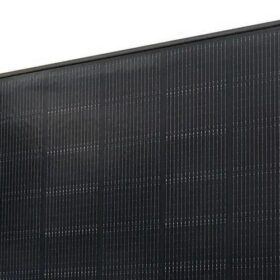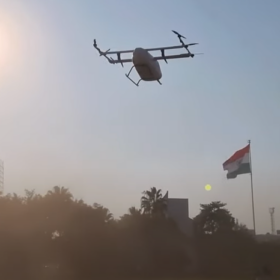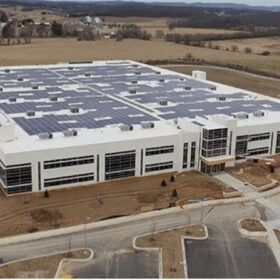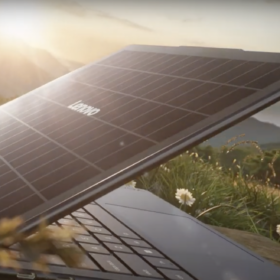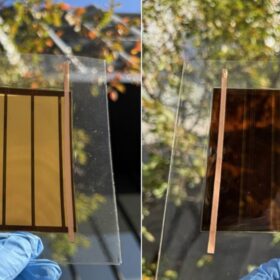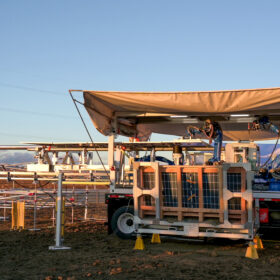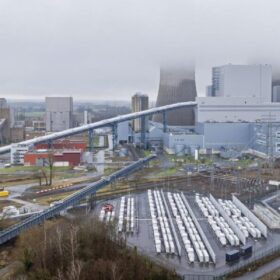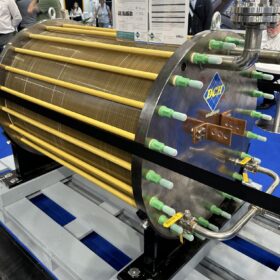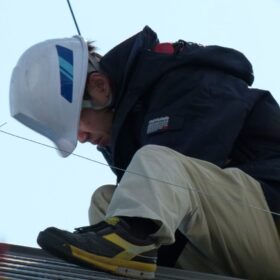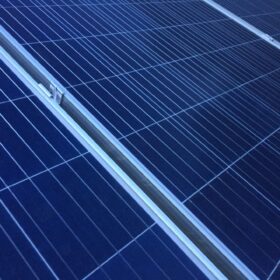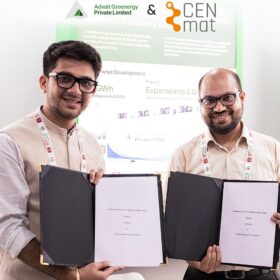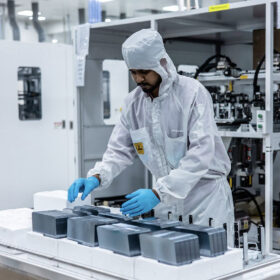Viridian Solar launches 23.6%-efficient TOPCon BIPV panel
The UK company says the new modules have a rated power output of 445 W and can reportedly guarantee a power yield of 95% after 10 years.
The Hydrogen Stream: BPCL collaborates with BluJ Aerospace, ANERT, and CIAL for world’s first hydrogen-powered VTOL aviation ecosystem
Bharat Petroleum Corp Ltd (BPCL) will establish hydrogen refuelling infrastructure for the hydrogen-fueled vertical take-off and landing (VTOL) aircraft developed by BluJ Aerospace. It will also design and develop an indigenous proton exchange membrane (PEM) hydrogen fuel cell with high power density to facilitate vertical lift-off.
C&I solar grows 18% in the United States in 2024
Distributed solar fell 11% in 2024, dragged down by the residential segment, according to Ohm Analytics’s report on the fourth quarter of 2024. However, signs of recovery emerged with a strong fourth quarter and increasing installation volumes throughout the year.
Lenovo unveils solar laptop with integrated PV panel
This is a proof-of-concept 1.22 kg laptop with a solar panel integrated into the lid, capable of absorbing enough sunlight in 20 minutes to power the device’s video for an hour.
Scientists unveil durable perovskite PV modules with carbon nanotube electrode
Japanese researchers have engineered a 100 cm² perovskite solar cell module featuring a robust single-walled carbon nanotube (CNT) electrode to improve durability and enable dual-sided light absorption.
MIT-based startup launches solar construction robotic system
Charge Robotics partnered with Solv Energy to pilot a portable factory system intended to make solar installations safer and more efficient for increasingly challenging terrain.
RWE plans 1.2 GWh battery on German former coal plant
The energy company says it is investing a mid-three-digit million euro amount into construction of the 600 MW battery energy storage system (BESS).
The Hydrogen Stream: TotalEnergies to buy green hydrogen from RWE
The Hydrogen Stream: TotalEnergies to buy green hydrogen from RWE
TotalEnergies says it has signed a 15-year deal with RWE to buy 30,000 tons of green hydrogen per year from a 300 MW electrolyzer in Germany, while Plug Power has announced a partnership with Southwire to create a clean hydrogen ecosystem in Texas.
Residential solar in USA declined 31% in 2024
Despite the down year, Wood Mackenzie forecasts the market to more than triple in size by 2035.
Scatec signs PPA for large-scale solar-plus-storage project in Egypt
Norway’s Scatec Asa has signed a 25-year power purchase agreement (PPA) with Egypt Aluminium for a 1.1 GW solar plant with 100 MW/200 MWh of battery energy storage. The agreement has been billed as Egypt’s first utility-scale PPA with an industrial offtaker.
